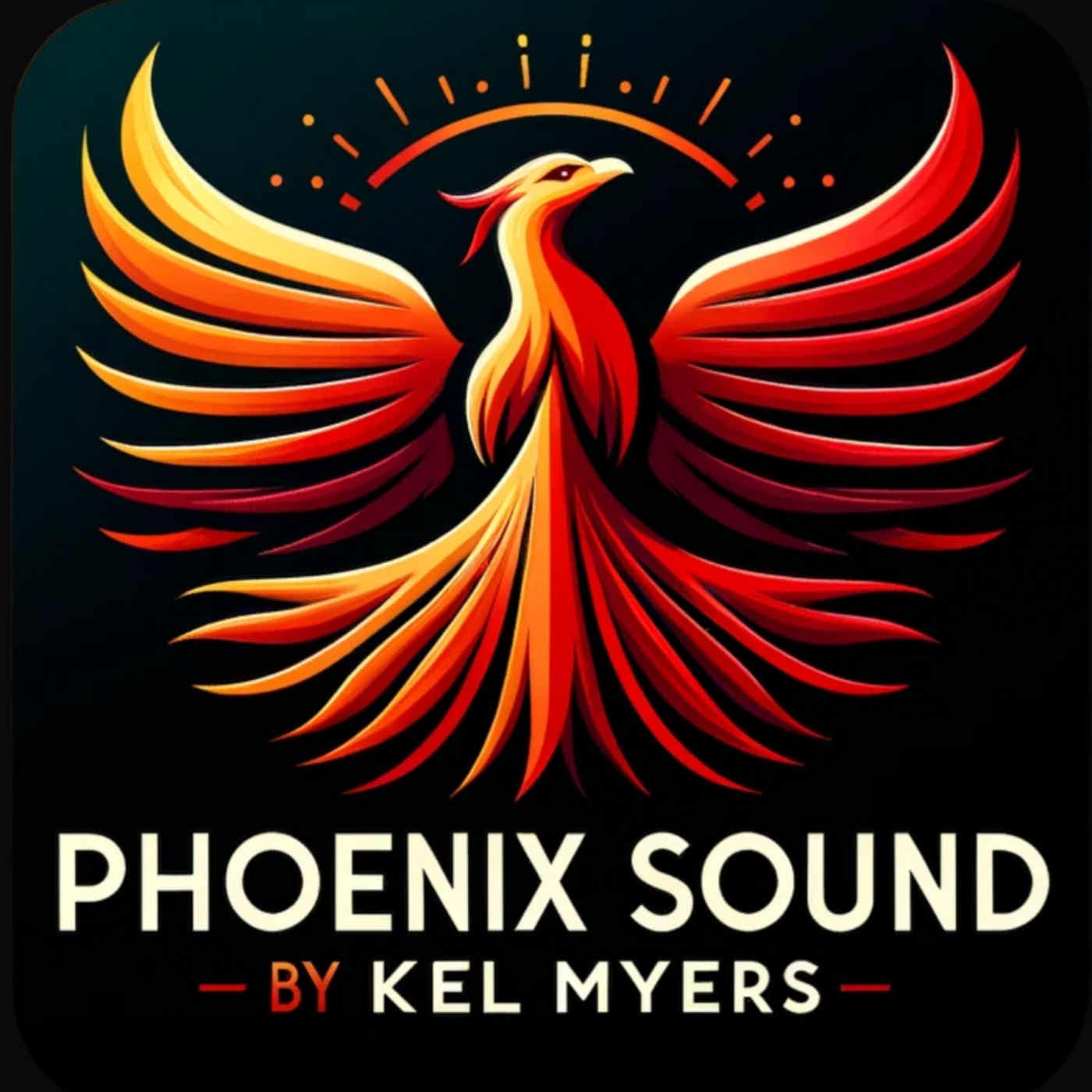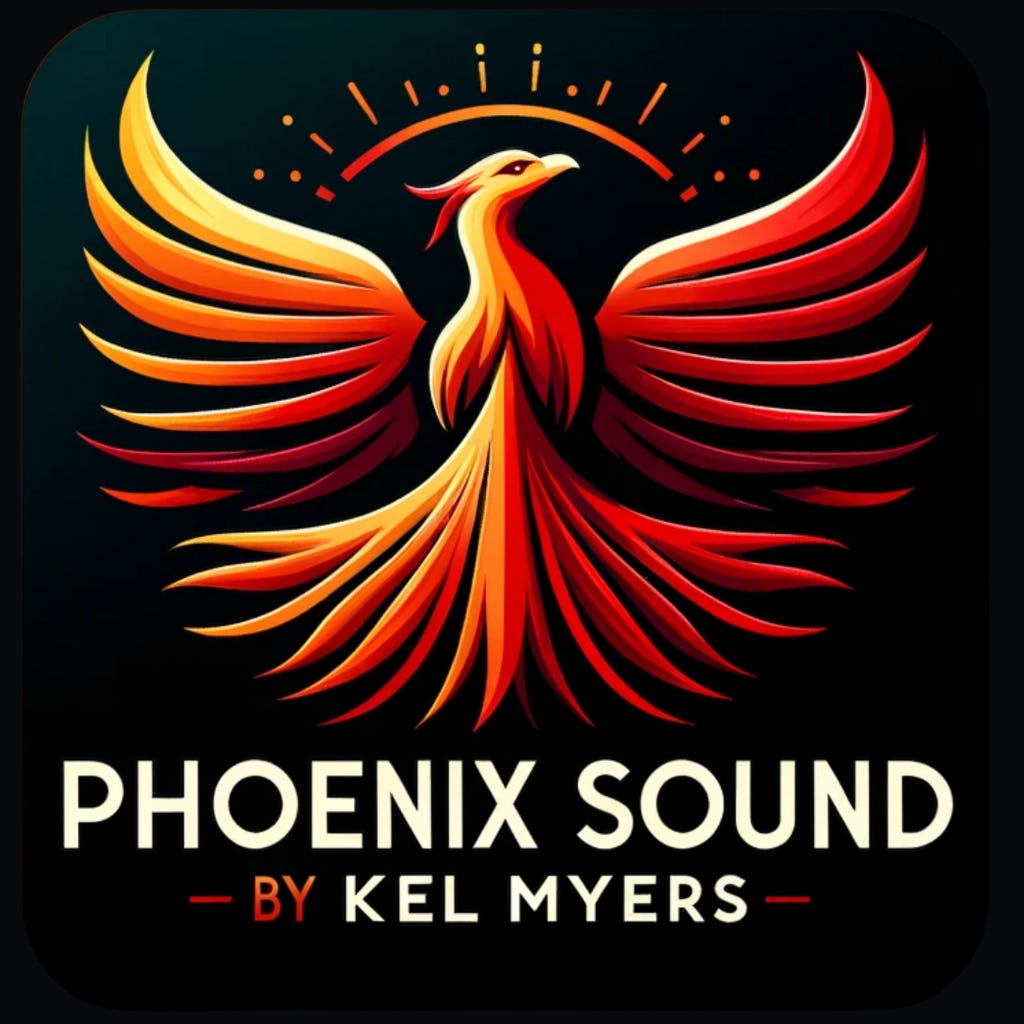Phoenix Sound by Kel Myers

Phoenix Sound by Kel Myers
Podcast Description
Rising above the status quo, one conversation at a time. Igniting expert insights into health, tech and society. phoenixsound.substack.com
Podcast Insights
Content Themes
The podcast focuses on health, technology, and societal issues, with specific episodes covering topics such as the stigma of plant-based medicine, the revolution in women's health care through technology, and the ethics of AI. Episodes like 'Breaking Barriers' feature discussions on making medical cannabis accessible, while others tackle negotiation power for women in healthcare.

Phoenix Sound is a space for enduring conversations that ignite transformation. Each episode features grounded, intelligent voices who have faced adversity, challenged systems, and reshaped their lives—where resilience meets truth, and sparks of change catch fire.
You’re sitting in a sterile exam room, the hum of fluorescent lights filling the silence. You’ve listed your symptoms carefully, like evidence presented in court. The pain is constant, your body a storm you can’t quiet.
The test results come back “normal.”
Your doctor leans back, smiles softly, and asks: “Have you considered stress? Maybe anxiety?”
Your reality — the pain, the history, the instinctive knowledge that something is wrong — is swept away with a single word. Psychosomatic.
That is medical gaslighting.
What We Mean When We Say Gaslighting
By definition, gaslighting is the use of psychological manipulation to undermine a person’s faith in their own judgment, memory, or sanity.
It’s the practice of deceiving people through the repetition of a constructed false narrative.
When that happens in a medical context — in a hospital, a GP clinic, or increasingly via Telehealth — we call it medical gaslighting. And like every injustice, it doesn’t affect everyone equally.
The Evidence
Medical gaslighting isn’t anecdotal. It’s systemic.
Even The Lancet agreed last year that it was finally time to listen to women about their pain, admitting that dismissing symptoms as “minor or psychological” has eroded women’s health for decades.
Research shows:
* Women wait longer than men for emergency treatment and are 13–25% less likely to receive strong opioid pain medication for the same symptoms. Despite the fact that 70% of chronic pain patients are women, 80% of pain studies are still conducted on men.
* Black patients are consistently undertreated for pain. A 2019 meta-analysis found they were 35% less likely than White patients to receive pain medication in emergency settings. A study of 4.7 million EMS activations confirmed that even when pain scores were high, Black patientswere roughly half as likely as White patients to be given opioids or ketamine.
* LGBTQIA+ people also face disproportionate bias in healthcare. Surveys reveal that nearly one in six LGBTQIA+ adults report discrimination in healthcare settings, including denial of treatment, misdiagnosis, and verbal harassment.
These aren’t isolated failures. They are patterns — woven into the very structure of society and it pollutes the integrity of systems like healthcare where everyone is meant to be treated with dignity and fairness.
The Australian Charter of Healthcare Rights promises every person access to care that is safe, respectful, and free from discrimination. Internationally, Australia has signed onto human rights treaties — like the Universal Declaration of Human Rights (Article 25) and the International Covenant on Economic, Social and Cultural Rights (Article 12) — both of which guarantee the right to health without bias or exclusion.
Yet the evidence shows a different story. When women are told their pain is “in their head,” when Black and First Nations patients are given less medication for the same pain scores, when LGBTQIA+ people are denied or delayed care — those rights are being eroded in practice.
This isn’t about isolated bad actors. It’s about structural neglect — the kind that embeds inequity into triage systems, training curricula, and research funding priorities. The impact is cumulative: it not only harms individuals in moments of crisis, it corrodes public trust in healthcare as a whole.
If healthcare is to remain a human right rather than a privilege, it requires more than acknowledgement. It demands systemic repair — where listening, equity, and justice are treated as medical interventions in their own right.
These patterns aren’t abstract or isolated to Australia – they are challenges societies are facing globally and they show up in the lives of real people — people like Tamika, whose story reveals what happens when invisible disease and bias collide.
Tamika’s Story
In this episode of Phoenix Sound, I sit down with Tamika D. Smith — award-winning journalist, author, and survivor. Her book, Medical Gaslighting: The Most Toxic Relationship I’ve Ever Had, charts the toll of endometriosis, lupus, and years of systemic dismissal.
At 17, Tamika was already being dismissed. By 2015, hospitalised with stroke-like symptoms, she was told by a Black female doctor to consider psychiatry instead. “When I requested my medical records from the unit, she stated that I basically faked the motor skills test that she had given to me.” she recalls.
Her story reveals what most medical charts will never show:
* The physical toll — untreated pain, delayed diagnoses, avoidable suffering.
* The mental toll — brain fog, PTSD, anxiety, self-doubt.
* The social toll — strain on family, finances, and trust in institutions.
Gaslighting, as Tamika explains, doesn’t stop at the body.
From Survival to Advocacy
At one point, Tamika was given six months to live.
Treatment plans failed. Doctors grew frustrated. She could have accepted her fate.
Instead, she became what she calls “the CEO of my own health.”
Through faith, resilience, and relentless self-advocacy, she rebuilt her life and reclaimed her voice. Today, she offers a mantra that doubles as a rallying cry:
Speak it. Believe it. Receive it.
Why This Matters
This conversation isn’t about endometriosis or lupus. It’s about the invisible cost of being dismissed in the exam room. It’s about how intelligent, professional, capable women are still told to doubt themselves in the 21st Century.
It’s about a system that has confused care with control, and in doing so has failed millions of us.
And it’s about what happens when we refuse to stay quiet.
(ANU REPORTER ARTICLE LINK referenced in episode intro)
Tamika’s e-book, The Most Toxic Relationship I’ve Ever Had: Surviving Medical Gaslighting is available to download here. Use code ‘Advocate’ for 15% off (exp. 30th Sept).
If you’ve been dismissed, disbelieved, or denied care, we want to hear from you. Share your story in the comments or reply directly.
Silence protects the system, not us.
When one woman speaks up, she lights the path for others.
And together, we rise.
– Kel Myers, host of Phoenix Sound.
Get full access to Phoenix Sound by Kel Myers at phoenixsound.substack.com/subscribe

Disclaimer
This podcast’s information is provided for general reference and was obtained from publicly accessible sources. The Podcast Collaborative neither produces nor verifies the content, accuracy, or suitability of this podcast. Views and opinions belong solely to the podcast creators and guests.
For a complete disclaimer, please see our Full Disclaimer on the archive page. The Podcast Collaborative bears no responsibility for the podcast’s themes, language, or overall content. Listener discretion is advised. Read our Terms of Use and Privacy Policy for more details.